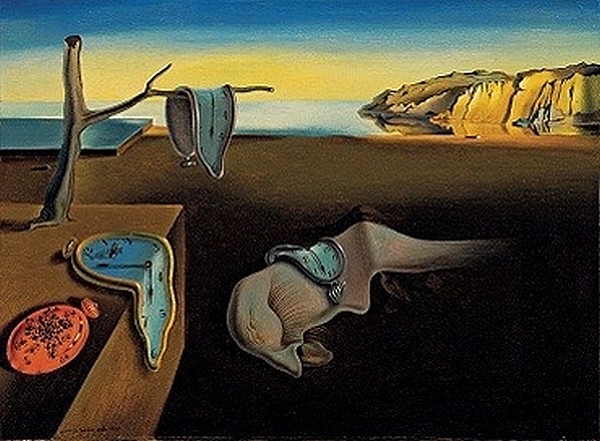
Let’s perform an experiment. Do you remember how your school was? The corridors, the classrooms, the playgrounds, the teachers... Most probably not only can you describe how it was but also, with your eyes closed, you can "see" it, like when you see a photograph. Notice that there are two different kinds of memory: one thing is to store the data that allows us to describe the classroom and another one is to store an image of that classroom. Let’s go a bit further: do you remember the school’s sounds? The teacher raising her voice to be heard, your best friend... “Hearing” the classroom is much more difficult; we can explain how the teacher spoke, but we can’t hear her as clearly as we see her. That is, the second kind of auditory memory is quite worse than the second kind of visual memory.
Auditory memory works differently than the visual one. To evoke sounds as well as we evoke images, they should have been frequently perceived or at least, pretty recently. Whereas visual memory just requires an occasional perception. Let’s think of three people: one person we often deal with, another one we had to deal with quite often in the past, and finally someone we met briefly. We remember easily the voice of the first person, we can remember the voice of the second if we really make an effort but the voice of the third (even though we still would remember his face) is lost.
The need of hearing repeatedly a sound to "record" it in our memory goes against us, music lovers. Long time ago we already spoke about those special moments that we experience at a recital and remember for years. Well, it’s true that we remember them but, as you know, not the way we would like it to be. During that magical moment, we are moved by a detail, an inflexion or a whole song that remains in our mind; for some days, those moments come back again and again to our memory, sometimes because we relive them over, sometimes even unintentionally, in the most inappropriate moments (and the person sitting opposite us in the underground wonders why we are smiling).
As we hear them just once, our memory can't fix them and that’s why days pass and those memories, unfortunately, become blurred. Over time we’ll keep remembering what impressed us so much, we’ll be able to describe it, we’ll also "see" the moment, but we won’t be able to "hear" it anymore. And, to be honest, it is pretty annoying. Don’t you think that it’s really a small tragedy that those fantastic moments that once filled our eyes with tears, simply disappear? That’s how our bad memory works. With some training, it could be improved up to a certain point, but that would be it.
The song I've chosen for this post is from a live recording of a Simon Keenlyside and Malcolm Martineau recital at the Wigmore Hall. Some of the six hundred people who attended probably experienced one of those unforgettable moments that, alas, become blurred so easily. But, lucky them anyway, they have the recording to relive them... or do they? We should keep talking about memory in another post...
We are listening to Notre amour, one of those songs that just make your day. It's about a love that in the first verse is light and in the last one is eternal, and in the middle is enchanted, sacred and infinite. The poem is by Armand Silvestre and the song by Gabriel Fauré. I hope you’ll like it as much as I do, it's one of my favourite songs by the French composer.
We end the list of happy songs (I added the Spotify list at the right column) with this mélodie. I wonder what the next list I'll come up with is. Before, I should write the posts I promised you, some of them long time ago.
Notre amour est chose légère,
Comme les parfums que le vent
Prend aux cimes de la fougère
Pour qu’on les respire en rêvant.
– Notre amour est chose légère.
Notre amour est chose charmante,
Comme les chansons du matin
Où nul regret ne se lamente,
Où vibre un espoir incertain.
– Notre amour est chose charmante.
Notre amour est chose sacrée,
Comme le mystère des bois
Où tressaille une âme ignorée,
Où les silences ont des voix.
– Notre amour est chose sacrée.
Notre amour est chose infinie,
Comme les chemins des couchants
Où la mer, aux cieux réunie,
S’endort sous les soleils penchants.
- Notre amour est chose infinie.
Notre amour est chose éternelle,
Comme tout ce qu’un Dieu vainqueur
A touché du feu de son aile,
Comme tout ce qui vient du cœur,
– Notre amour est chose éternelle.
Our love is something light
like the perfumes which the breeze
brings from the tips of ferns
for us to inhale as we dream.
Our love is something light.
Our love is something enchanting
like the morning's songs
in which regrets are not heard
but uncertain hopes vibrate.
Our love is something charming.
Our love is something sacred
like the forests' mysteries
in which an unknown soul quivers
and silences have voices.
Our love is something sacred!
Our love is something infinite
like the paths of the evening,
where the ocean, joined with the sky,
falls asleep under slanting suns.
Our love is something infinite.
Our love is something eternal
like all that has been touched
by the fiery wing of a victorious god,
like all that comes from the heart.
Our love is something eternal!
(translation by Peter Low)














Comments powered by CComment